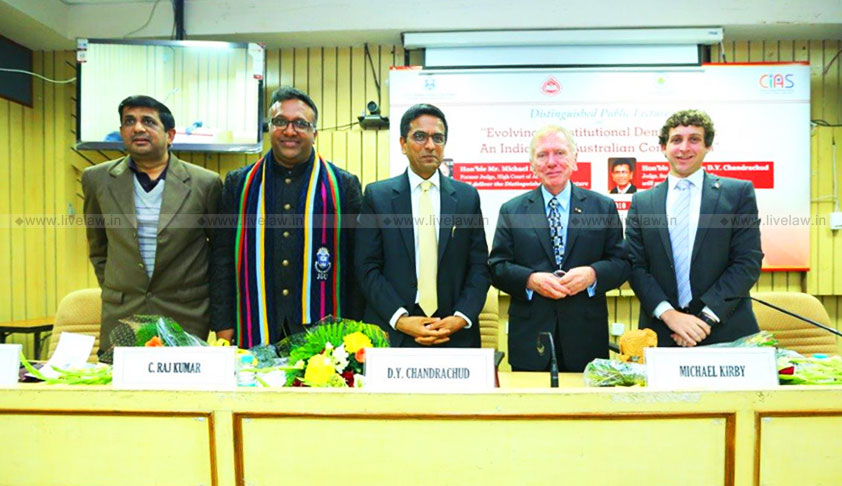There are large areas of silences in the Indian Constitution and filling in those silences involves drawing principles from the Constitution itself, observed Justice D.Y.Chandrachud, while presiding over the Distinguished Public Lecture, delivered by the visiting Australian jurist, Michael Kirby AC CMG, Former Judge, High Court of Australia.The lecture on the “Evolving...

